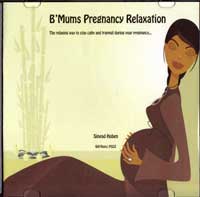Painful Pap Smear Test
Your pap smear test shouldn't be painful. However, for a number of reason a lot of women do appear to find them so. It's important that if you find you are experiencing any pain during your smear that you let your doctor or practice nurse know.
The most common reasons for a painful pap smear test are:
Tension: If you are feeling tense about your smear test this can cause you to feel some pain when the exam is under way because your vaginal muscles will tighten as if to try to keep the speculum out! By using relaxation techniques such as visualisation, distraction or deep breathing you may find it is possible to allow yourself to relax and avoid the pain. It can help a lot to tell the person performing the smear test that you are feeling very tense as they may be able to talk you through the procedure or talk about something else during it to help distract you.
Vaginosis: Vaginosis is related to stress and happens when your vaginal muscles tighten to such an extent that it is very difficult for the doctor or practice nurse to place the speculum into the vagina or to remove it after the exam. Coating the speculum with lots of lubrication lotion can help although it is helpful if you can try to relax the muscles by using the techniques mentioned above.
Over-sized Speculum: there are several different sizes of speculum available. Your doctor or practice nurse will choose the one they feel is the best fit for you but if you are finding it painful, let them know so they can change to a smaller sized speculum or note it down for next time.
Thrush: if you know or suspect you are suffering from a yeast infection like thrush this may make your smear test more uncomfortable than normal. You should contact your surgery and let them know as it is probably best to get the thrush treated beforehand and to postpone your pap smear test for a few weeks until the thrush has cleared up.
Pinched Skin: Very occasionally the speculum may pinch the skin in your vagina slightly which can cause pain. Let your doctor or practice know if you think this is happening so they can withdraw the speculum and start again.
You may notice some slight spotting or very light bleeding after your smear test. This is quite normal and shouldn't cause any problems. However, if there is a lot of bleeding or it doesn't settle down quickly, see your gp so it can be investigated further.
Related Smear Test Articles
Treatments for Cervical Changes
Cervical Cancer and Human Papilloma Virus
Resources
For further information about HPV visit NHS Cancer Screening Programme.
Further information about Colposcopy and invasive illness is available from the British Society for Colposcopy and Cervical Pathology.
Treat Yourself to Me Time!

For the ultimate pregnancy treat, buy our Pregnancy Relaxation CD or download our Pregnancy Relaxation mp3
. Lie back, relax and connect with your unborn baby in the privacy of your own home.
Or, if you're currently struggling with a busy lifestyle and the added demands of parenting, try our Perfect Relaxation for Parents mp3 - take time out for yourself and awaken refreshed and ready to face whatever life throws at you!
Also by BreastfeedingMums
Books We Love!
Support Us!
Write for Us
If you would like to contribute a pregnancy or breastfeeding poem, story or photos, or a miscarriage poem or story, just contact us and we'll add it to the site. Thanks.

